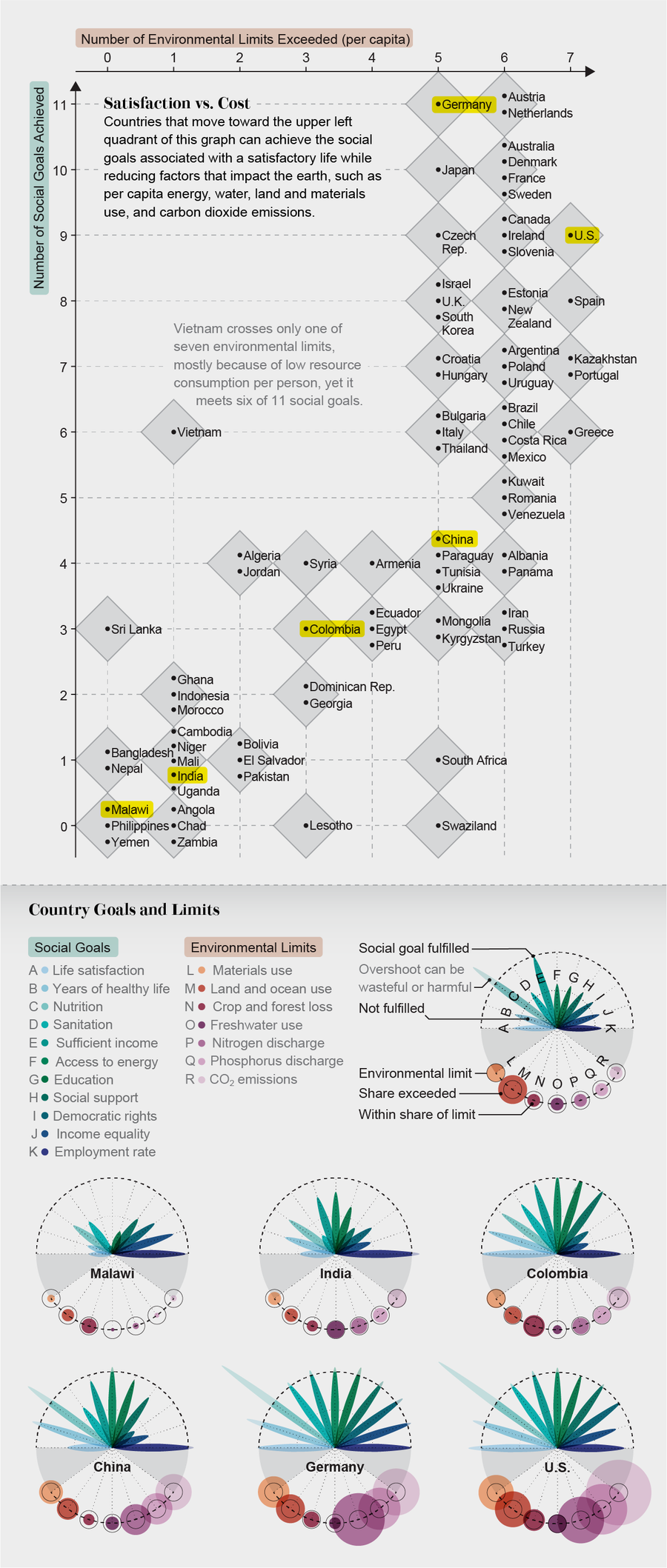Many wealthy nations achieve a range of social objectives that together can provide a good life for their people, as outlined by the United Nations Sustainable Development Goals. But to do so, they exceed their share of the earth’s natural resources and surpass environmental impact limits needed to safeguard the planet, according to a recent study (top right of main graph). Less wealthy nations use resources more modestly and have lower impacts but meet fewer of the social goals (bottom left of main graph). The solution: “Wealthy nations can consume less, with no loss in quality of life,” says study leader Daniel W. O’Neill of the University of Leeds in England. That would free up resources for less wealthy nations to improve lives (circular charts) while still keeping within safe environmental boundaries.
June 1, 2018
1 min read
A Good Life for All
Can humans live well without pillaging the planet?
